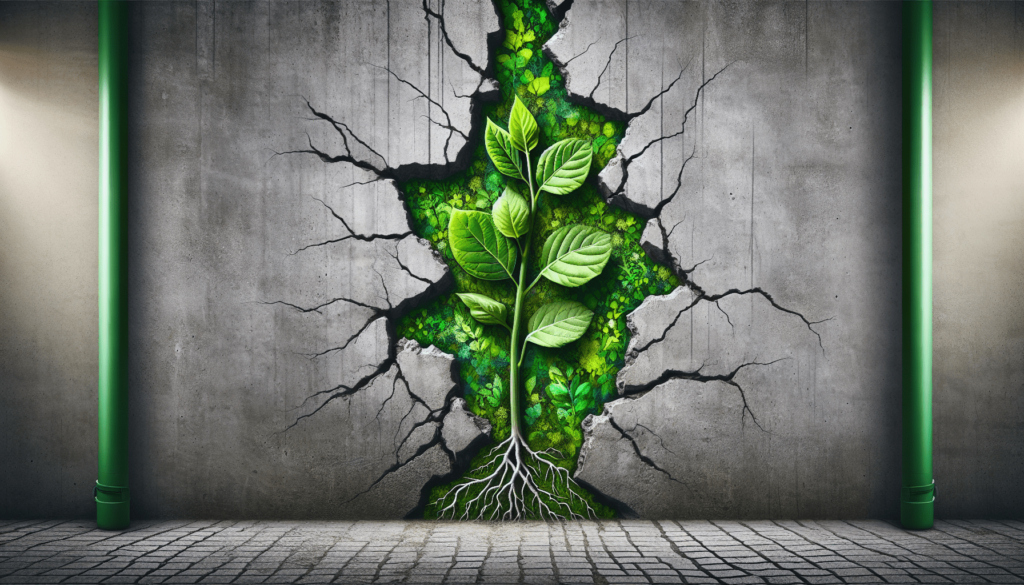In today’s rapidly changing world, there is an increasing need for individuals to be aware of the importance of green education and awareness. This article explores the significance of green education in promoting a sustainable future for our planet. By understanding the impact of our actions on the environment, we can make informed choices and contribute to the preservation of our natural resources. It is crucial for everyone to embrace the concepts of eco-friendly practices, renewable energy, and conservation efforts. Let’s embark on this journey together and discover how green education and awareness can make a difference in shaping a brighter tomorrow.
Understanding Environmental Issues
The need to understand environmental issues
Understanding environmental issues is crucial in today’s world as they have a significant impact on our planet and all living beings. Without knowledge and awareness, we may unknowingly contribute to the degradation of the environment. By educating ourselves about these issues, we can make informed decisions and take necessary actions to protect and preserve our natural resources.
The impact of human activities on the environment
Human activities, such as industrialization, deforestation, and pollution, have a detrimental impact on the environment. Emissions from industries and vehicles contribute to air pollution and climate change, while deforestation leads to loss of biodiversity and disruption of ecosystems. It is important to comprehend the consequences of our actions to minimize their negative effects and find sustainable alternatives.
The role of green education in raising awareness
Green education plays a crucial role in raising awareness about environmental issues and promoting sustainable practices. By imparting knowledge about these issues and their global implications, green education empowers individuals to become responsible stewards of the environment. It offers an opportunity to understand the interconnectedness of various ecosystems and the importance of preserving natural resources for future generations.
Promoting Sustainable Practices
Introduction to sustainable practices
Sustainable practices refer to actions that minimize harm to the environment while meeting the needs of the present and future generations. These practices encompass areas such as energy, waste management, transportation, and agriculture. By adopting sustainable practices, we can reduce our ecological footprint and ensure a healthier and more sustainable planet for all.
Encouraging conservation and waste reduction
Conservation and waste reduction are essential pillars of sustainable practices. Conserving resources like water and energy helps minimize their depletion, while waste reduction involves reducing, reusing, and recycling materials to decrease the amount of waste sent to landfills. By implementing these practices in our daily lives, we can contribute to preserving natural resources and minimizing environmental degradation.
Highlighting the benefits of renewable energy
Renewable energy sources, such as solar, wind, and hydroelectric power, offer cleaner and more sustainable alternatives to fossil fuels. Green education can emphasize the benefits of renewable energy, such as reduced greenhouse gas emissions, improved air quality, and increased energy independence. By promoting the use of renewable energy, we can mitigate the impacts of climate change and create a more sustainable future.
Advocating for eco-friendly transportation
Transportation is a major contributor to greenhouse gas emissions and air pollution. By advocating for eco-friendly transportation options such as walking, biking, carpooling, and public transit, we can reduce our carbon footprint. Green education can raise awareness about the environmental and health benefits of these alternatives, encouraging individuals to make more sustainable choices in their daily commute.

Creating a Green Mindset
Instilling a sense of responsibility towards the environment
Instilling a sense of responsibility towards the environment is crucial for fostering a green mindset. Green education can help individuals understand the impact of their actions on the environment and encourage them to take responsibility for their choices. By recognizing the interconnectedness of all living beings and the environment, we can develop a deep sense of respect and stewardship towards nature.
Teaching the importance of biodiversity
Biodiversity refers to the variety of life forms and ecosystems on Earth. It is essential for ecosystem stability, resilience, and functioning. Green education can teach the importance of biodiversity and the interconnectedness of all species. By understanding the delicate balance and interdependence of ecosystems, we can appreciate the need to protect and preserve biodiversity for the well-being of all living organisms.
Encouraging mindfulness in daily life activities
Mindfulness involves being fully present and aware of our thoughts, emotions, and actions. Green education can promote mindfulness in daily life activities by encouraging individuals to make conscious choices that are environmentally friendly. By cultivating mindfulness, we can reduce consumption, waste, and environmental impact, leading to a more sustainable and balanced lifestyle.
Fostering Environmental Stewardship
Empowering individuals to take action
Empowering individuals to take action is a vital aspect of green education. By providing knowledge, skills, and resources, green education enables individuals to make informed choices and actively contribute to environmental conservation. It motivates individuals to participate in initiatives that protect and restore the environment, such as community clean-ups, tree planting, and sustainable development projects.
Developing leadership skills
Green education fosters the development of leadership skills necessary for addressing environmental challenges. It equips individuals with skills such as critical thinking, problem-solving, and collaboration, enabling them to become effective leaders in promoting sustainable practices. By nurturing leadership qualities, green education empowers individuals to drive positive change and inspire others to take action.
Promoting community involvement
Community involvement is crucial for addressing environmental issues at a larger scale. Green education can promote community involvement by organizing environmental awareness campaigns, workshops, and volunteering opportunities. By actively involving communities, individuals can collectively identify and implement solutions that address local environmental challenges, creating a more sustainable and resilient community.
Supporting environmental organizations and initiatives
Green education can encourage individuals to support environmental organizations and initiatives. By donating their time, resources, or funding, individuals can contribute to the success of projects focused on environmental conservation, restoration, and sustainability. Supporting these organizations and initiatives helps create a network of like-minded individuals who work together towards a greener and healthier planet.

Addressing Climate Change
Understanding the science behind climate change
Understanding the science behind climate change is crucial for comprehending its causes and impacts. Green education can provide individuals with knowledge about greenhouse gases, the greenhouse effect, and the mechanisms driving climate change. By understanding the science, individuals can grasp the urgency of taking action to mitigate climate change and adapt to its effects.
The role of education in mitigating climate change
Education plays a critical role in mitigating climate change. Green education can empower individuals to make sustainable choices that reduce their carbon footprint, such as energy conservation and adopting renewable energy sources. It also equips individuals with the knowledge and skills needed to advocate for policy changes, engage in sustainable innovation, and promote climate-friendly practices in various sectors.
Promoting sustainable solutions to reduce carbon emissions
Reducing carbon emissions is crucial to combat climate change. Green education can promote sustainable solutions such as energy efficiency, transitioning to renewable energy sources, and adopting low-carbon technologies. By raising awareness about these solutions, individuals can make informed choices that contribute to reducing greenhouse gas emissions and mitigating the impacts of climate change.
Advocacy for government policies and international cooperation
Green education can empower individuals to advocate for government policies that prioritize sustainability and climate action. By engaging in grassroots movements, participating in climate marches, and contacting elected officials, individuals can push for policies that reduce carbon emissions, promote renewable energy, and protect natural resources. Additionally, green education can emphasize the importance of international cooperation to address climate change effectively through global agreements and collaborations.
Preserving Natural Resources
The importance of conserving water
Water is a finite and essential resource for all life on Earth. Green education can raise awareness about the importance of conserving water by promoting water-saving practices, such as fixing leaks, using efficient appliances, and practicing responsible irrigation. By reducing water wastage and adopting sustainable water management practices, individuals can contribute to the preservation of this precious resource.
Sustainable management of forests and wildlife
Forests and wildlife play a crucial role in maintaining the health and balance of ecosystems. Green education can emphasize the significance of sustainable forest management, including reforestation, reducing deforestation, and protecting endangered species. By supporting sustainable forestry practices and wildlife conservation efforts, individuals can contribute to the preservation of biodiversity and the protection of natural habitats.
Reducing pollution and protecting ecosystems
Pollution disrupts ecosystems and poses a threat to the health of both humans and wildlife. Green education can promote awareness about pollution sources, such as industrial waste, plastic pollution, and air pollution, and encourage individuals to adopt practices that reduce pollution. By minimizing pollution through responsible waste management, reducing the use of harmful chemicals, and advocating for stricter environmental regulations, individuals can help protect and restore ecosystems.
Encouraging Eco-friendly Consumption
Understanding the impact of consumer choices
Consumer choices have a significant impact on the environment. Green education can help individuals understand the life cycle of products, from raw material extraction to disposal, and the environmental consequences associated with each stage. By understanding the impact of their consumption choices, individuals can make more sustainable decisions, such as supporting environmentally responsible companies and opting for products with minimal environmental footprint.
Promoting sustainable agriculture
Agriculture is a major contributor to environmental degradation through practices such as intensive chemical use, deforestation, and soil degradation. Green education can promote sustainable agriculture practices, such as organic farming, agroforestry, and regenerative farming. By supporting sustainable agriculture, individuals can reduce the environmental impact of food production, protect soil health, and promote biodiversity.
Reducing single-use plastics
Single-use plastics, such as plastic bags and bottles, have a devastating impact on the environment, polluting oceans, rivers, and landfills. Green education can raise awareness about the harmful effects of single-use plastics and promote the adoption of reusable alternatives. By reducing the use of single-use plastics and supporting initiatives like plastic recycling and waste management, individuals can contribute to reducing plastic pollution.
Supporting local and organic products
Supporting local and organic products is another way to promote eco-friendly consumption. Green education can emphasize the benefits of sourcing goods from local farmers and businesses that prioritize sustainable practices. By supporting local economies and organic agriculture, individuals can reduce the carbon footprint associated with transportation, minimize exposure to harmful chemicals, and support sustainable livelihoods.
Green Education at Different Levels
The role of primary and secondary education
Primary and secondary education play a crucial role in shaping individuals’ attitudes and behaviors towards the environment. By incorporating green education into curricula, schools can instill a sense of environmental responsibility and inspire students to live sustainably. Environmental science classes, field trips, and extracurricular activities can provide practical experiences and promote critical thinking about environmental issues.
Green education in higher education
Higher education institutions have the opportunity to deepen individuals’ understanding of environmental issues and foster innovative solutions. By offering courses and programs in sustainability, renewable energy, and environmental science, universities can equip students with the knowledge and skills needed to tackle complex environmental challenges. Research opportunities and campus sustainability initiatives can further engage students in green education.
Professional training and green jobs
Green education extends beyond formal education and encompasses professional training and green job opportunities. Vocational training programs can equip individuals with skills related to renewable energy installation, environmental conservation, and sustainable practices in various industries. By promoting green jobs and offering training opportunities, green education can facilitate the transition towards a sustainable economy and provide individuals with rewarding career options.
Supporting Research and Innovation
Investing in green research
Investing in green research is crucial for developing sustainable solutions to environmental challenges. Green education can prioritize and support research initiatives that explore renewable energy, conservation strategies, climate resilience, and sustainable technologies. By investing in research, we can gain a deeper understanding of environmental issues and develop innovative solutions that lead to a more sustainable future.
Encouraging innovation in sustainable technology
Sustainable technology plays a vital role in addressing environmental challenges. Green education can foster innovation by encouraging individuals to develop and implement sustainable technologies and solutions. By supporting entrepreneurship, research, and development of green technologies, we can accelerate the transition to a low-carbon and resource-efficient society.
Promoting collaboration between academia and industry
Collaboration between academia and industry is crucial for the development and implementation of sustainable solutions. Green education can foster partnerships that bridge the gap between research and practical application. By promoting collaborations, knowledge sharing, and technology transfer, academia and industry can work together to address environmental issues, reduce emissions, and create sustainable products and services.
Overcoming Barriers to Green Education
Breaking down socio-economic barriers
Access to green education should be available to all, regardless of socio-economic status. Green education initiatives can prioritize reaching underserved communities and providing equal opportunities for all individuals to understand and engage in environmental issues. Scholarships, outreach programs, and community-based initiatives can help break down socio-economic barriers and ensure that everyone has access to green education.
Addressing resistance and lack of awareness
Resistance and lack of awareness can hinder the progress of green education initiatives. By addressing misconceptions and skepticism surrounding environmental issues, green education can help individuals overcome biases and resistance to change. By raising awareness through effective communication, education campaigns, and engaging storytelling, green education can inspire more people to take action and embrace sustainable practices.
Incorporating green education into existing curricula
To maximize the impact of green education, it should be seamlessly integrated into existing curricula across different subjects, such as science, social studies, and economics. By incorporating environmental concepts and sustainability principles into various educational disciplines, green education can reach a wider audience and instill a holistic understanding of the interconnections between environmental, social, and economic systems.
Providing resources and training for educators
Educators play a vital role in delivering green education effectively. To ensure the success of green education initiatives, educators need access to resources, training, and support. Professional development programs, educational materials, and networking opportunities can equip educators with the knowledge and skills required to effectively teach and inspire students about environmental issues and sustainable practices.
In conclusion, green education and awareness are of paramount importance in addressing environmental challenges and securing a sustainable future. By understanding environmental issues, promoting sustainable practices, fostering a green mindset, and supporting research and innovation, we can empower individuals to become environmental stewards and actively contribute to the well-being of our planet. Overcoming barriers to green education and ensuring equal access to knowledge and resources will be crucial in creating a greener and more sustainable world for all.

